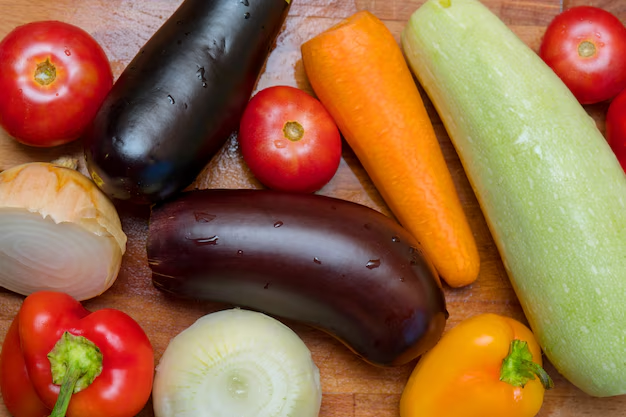Your Guide to What Vegetables Are Good For Diabetics
What You Get:
Free Guide
Free, helpful information about Diabetes FAQ and related What Vegetables Are Good For Diabetics topics.
Helpful Information
Get clear and easy-to-understand details about What Vegetables Are Good For Diabetics topics and resources.
Personalized Offers
Answer a few optional questions to receive offers or information related to Diabetes FAQ. The survey is optional and not required to access your free guide.
Discover the Best Vegetables for Diabetics and Their Benefits
Living with diabetes often requires a balancing act in managing diet and lifestyle. One of the easiest ways to maintain healthy blood sugar levels is by including nutritious vegetables in your daily meals. But not all vegetables are created equal for diabetics—here’s a guide to the best options.
Top Vegetables for Diabetes Management
Leafy Greens: Spinach and Kale
Leafy greens like spinach and kale are carb-conscious choices, rich in nutrients, vitamins, and antioxidants. Their high fiber content helps regulate blood sugar levels and increases insulin sensitivity. They’re also versatile; you can incorporate them into salads, smoothies, or quick sauté dishes.
Cruciferous Vegetables: Broccoli and Cauliflower
Broccoli and cauliflower are low in carbohydrates but packed with essential nutrients such as vitamins C and K. These vegetables are known to help lower inflammation and improve overall metabolic health. They can be enjoyed raw, steamed, or roasted, and make a great base for various low-carb dishes.
Non-Starchy Vegetables: Zucchini and Asparagus
Non-starchy veggies like zucchini and asparagus are excellent due to their low sugar content. Zucchini is particularly versatile; spiralized, it can replace pasta for a healthier meal. Asparagus contains antioxidants too and can easily be grilled or steamed for a nutritious side dish.
Berries and Bell Peppers for Nutrient Density
Though technically fruits, berries can be included given their low sugar content and high antioxidant properties. Pair these with red, yellow, and green bell peppers, which are packed with vitamins and help maintain stable blood sugar levels.
Alliums: Garlic and Onions
Both garlic and onions add flavor while offering significant health benefits. They have properties that can help in reducing blood pressure and improving fat metabolism, making them heart-friendly choices.
Building a Holistic Approach to Diabetes Care
Incorporating these vegetables into your diet is one piece of the puzzle in managing diabetes. But a holistic approach often involves more than just dietary adjustments.
Financial and Educational Support for Diabetes Management
If managing the costs related to diabetes care is a concern, there are financial aid and educational resources available to help ease the burden:
- Medicaid & Medicare: Government-funded insurance options to cover certain diabetes-related expenses.
- Supplemental Nutrition Assistance Program (SNAP): Provides financial aid to purchase healthy foods, including fresh produce.
- Diabetes Education Programs: Often available through local hospitals or health centers, offering classes to help manage diabetes effectively.
- Prescription Assistance Programs: Help reduce the cost of insulin and other necessary medications.
- Debt Relief Solutions: Specialized options can assist in reducing the financial stress associated with medical bills.
Making the Most of Your Resources
Creating a supportive environment, both nutritionally and financially, can enhance your ability to manage diabetes effectively. With the right mix of healthy vegetables and financial resources, maintaining control over your health can become a more manageable journey.
Financial & Educational Resources for Diabetics
- 🏥 Medicaid & Medicare: For health coverage options
- 🛒 SNAP Benefits: To assist with buying healthy foods
- 📚 Diabetes Education Programs: For effective diabetes management learning
- 💊 Prescription Assistance: To reduce medication costs
- 💸 Debt Relief Solutions: For managing medical bills effectively
Embrace the support systems available, and empower yourself with the knowledge and resources needed for a healthier lifestyle.
What You Get:
Free Diabetes FAQ Guide
Free, helpful information about What Vegetables Are Good For Diabetics and related resources.

Helpful Information
Get clear, easy-to-understand details about What Vegetables Are Good For Diabetics topics.

Optional Personalized Offers
Answer a few optional questions to see offers or information related to Diabetes FAQ. Participation is not required to get your free guide.


